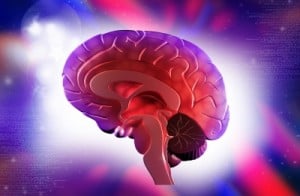 Fatigue is a common problem most people experience from time to time. Often times, fatigue can be a symptom of an illness. However, for some, fatigue continuously lingers, creating an impact on day-to-day life. In fact, about 20% of people in the United States suffer from fatigue, which they claim to be so severe that it interferes with their ability to complete a regular day. Experiencing fatigue means feeling a lack of energy and motivation, often confused with drowsiness, which is the feeling of needing sleep. If a person is experiencing unexplainable fatigue, it may be possible a person’s wellness is being compromised by an imbalance occurring without notice. Review these areas of wellness if fatigue becomes a common occurrence, hindering daily life.
Fatigue is a common problem most people experience from time to time. Often times, fatigue can be a symptom of an illness. However, for some, fatigue continuously lingers, creating an impact on day-to-day life. In fact, about 20% of people in the United States suffer from fatigue, which they claim to be so severe that it interferes with their ability to complete a regular day. Experiencing fatigue means feeling a lack of energy and motivation, often confused with drowsiness, which is the feeling of needing sleep. If a person is experiencing unexplainable fatigue, it may be possible a person’s wellness is being compromised by an imbalance occurring without notice. Review these areas of wellness if fatigue becomes a common occurrence, hindering daily life.
- Nutrition
Are you drinking enough water? An estimated 75% of people are not drinking enough water on a daily basis for optimal health and performance. Staying hydrated throughout the day will help you feel much more energized. The average adult male needs about 13 cups of water a day, and the average adult female needs about 9 cups. Use a large, refillable bottle to easily measure and monitor your daily water intake. If you know how much water the bottle holds, you will have a better understanding of how much water you have been drinking.
Are you eating too little? A person’s ability to function can be compromised due to low nutritional intake. If your brain is not getting enough of the proper nutrients it needs to perform at its best, even simple tasks may seem exhausting. For those making an effort to lose weight, a common mistake that occurs when trying to achieve a healthy weight is under-eating. Make sure you are getting enough food in your day to ensure your body does not go into starvation mode. This will not only increase your fatigue dramatically, it will negatively impact your weight loss. Try adding a couple more healthy snacks into your diet throughout the day.
Are you eating too much unhealthy food? The nutritional quality of the food and the amount of food eaten greatly inflluences how awake and alert you are feeling. Eating large portions of sugary, fattening food is not recommended in a healthy diet, but instead small meals consistently throughout the day to keep blood sugar consistent and steady. If indulging in unhealthy foods, try to keep the portions small.
Are you overweight? Naturally, if a person weighs more than what is healthy for their size and body type, the body will have more trouble functioning due to the excess weight. A combination of a healthy diet and exercise will not only help you lose weight, but it will also improve your energy levels drastically.
Are you getting all of the nutrients you need? Often times when people are feeling fatigued, it is due to a deficiency in essential nutrients that help the body function normally. Common nutritional deficiencies include potassium, iron, vitamin B12, and magnesium. Make sure to include many fruits and vegetables in your diet to ensure you are getting all of the vitamins and nutrients you need. A blood test can also determine what nutrients are deficient, and supplements can be used to help replenish them within the body.
- Sleep
Are you getting enough sleep? This question may seem obvious, however studies have shown that at least 40% of Americans are not getting the sleep needed for optimum health. Although it varies individual to individual, recommended hours of sleep are about 7-9 hours each night. Many people claim that 4-6 hours each night is enough for them, but studies have shown those getting less than 7 hours have more difficulty focusing and processing information. Neurotherapy is a helpful method of brain-training to correct the insomnia and other sleep disorders.
Are you awakening in the night? Maybe you are getting enough hours of sleep, but are getting woken in the night too often. This may be due to the sleeping environment you have or even a sleep disorder, which may disrupt you, such as sleep apnea, which affects breathing while asleep. If signs point to a sleeping disorder, it may be beneficial to participate in an overnight test at a sleep clinic.
- Fitness
Are you exercising enough? Although many people think exercising makes a person more tired, it has actually been proven to increase overall energy, particularly when exercise is frequent and regular. Try incorporating more physical activity throughout your day, whether it means taking the stairs or walking instead of driving when possible. Engage in exercise programs that will benefit you at your fitness level.
Are you overtraining? Exercise is essential to a healthy lifestyle, but after a certain point, it is actually possible to over-train. Along with unwanted symptoms such as insomnia, mood changes, and a weakened immune system, over-exercising can cause extreme fatigue as well. Pushing through the fatigue for another work out may wake a person up in the short term, but will only have negative affects following the work out. Additionally, it is always important to remember to consume enough calories when engaging in high-intensity work out programs.
- Mental Health
Are you depressed? If you have been experiencing symptoms of depression, such sadness, negative thoughts, and feeling disinterested in activities you used to love, fatigue may be another symptom of depression. Seeking professional counseling is always a great first step to achieving good mental health. Neurotherapy can also be particularly useful in helping fight the symptoms of depression as well.
Do you suffer from anxiety? Being constantly worried and anxious sends the body many intense signals all day long. Therefore, it makes sense that one of the biggest signs of suffering from an anxiety disorder is fatigue. Finding ways to combat anxiety and utilizing methods of relaxation on a regular basis will help increase your overall energy over time, as your stress and worry diminishes. Neurotherapy is beneficial for combatting anxiety as well.
- Allergies
Do you have allergies? An estimated 1 in 5 Americans suffer from allergies of some kind, including indoor/outdoor allergies. One of the key allergy symptoms is fatigue, both mild and severe. The best way to determine if you suffer from allergies is to have your doctor complete an allergy test for you. Additionally, if you take antihistamines to combat allergic reactions, these may be causing the fatigue as well. Histamine is a neurotransmitter that keeps you feeling alert, and taking antihistamines can sometimes reverse this feeling. Natural methods of treating allergies is highly recommended. (Read 5 Natural Allergies Remedies)
Do you have a food intolerance? Many people go about their lives not realizing they have a sensitivity to certain types of food. One of the main symptoms of having a sensitivity is fatigue due to the body having trouble digesting the food. Having a doctor do an allergy test is highly recommended to ensure you are not eating foods that are working against you instead of for your benefit.
Additional Possible Causes of Fatigue
- Adrenal Fatigue
- Anemia
- Chronic Fatigue Syndrome
- Diabetes
- Fibromyalgia
- Heart Disease
- Underactive or Overactive Thyroid
Fatigue is one of the most common symptoms for a variety of other health issues. Talk to your doctor about the fatigue you are experiencing. Often times the patterns in which fatigue occurs sheds some light on the cause as well.
For more information about how Advanced Neurotherapy can help treat your fatigue, schedule a free consultation with our director Dr. Jolene Ross.
Image courtesy of stockimages at FreeDigitalPhotos.net








